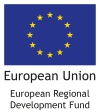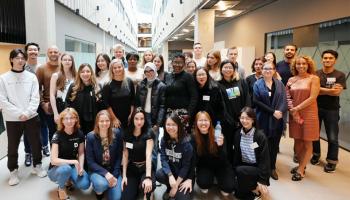P4 Skilled and socially inclusive region
4.2. More aligned vocational education and training (VET) programmes in the Central Baltic region
Central Baltic
01.02.2020 - 31.12.2022
€607 167
€474 875
The involvement in Social Entrepreneurship (SE) is at a low level with less than 1% of the business population undertaking such activities. In order to boost social entrepreneurship an education programme developed collaboratively with companies is needed.
The objective of the project is to innovate aligned professional, higher education in social entrepreneurship in Degree Programmes in four CB area countries. We will develop entrepreneurship education, as well as create SE training for companies' continuing education. The aim is to strengthen the role of social entrepreneurship within the CB area in the long run by developing an in-depth understanding of the state-of-the art of SE via company surveys: know-how of challenges and needs of SE in CB area.
As a result, the project will innovate SE learning materials: it will provide a new theory of SE and practical case studies aimed at ensuring the alignment of the curricula with society, and will develop a training module for companies.
LAB-ammattikorkeakoulu Oy
Country: FI
Partner budget: 237.169 EUR
Amount of ERDF funding: 177.877 EUR ERDF
Rīgas Tehniskā universitāte
Country: LV
Partner budget: 97.549 EUR
Amount of ERDF funding: 82.917 EUR ERDF
Tartu Ülikool
Country: EE
Partner budget: 97.449 EUR
Amount of ERDF funding: 82.832 EUR ERDF
Kungliga Tekniska Högskolan
Country: SE
Partner budget: 175.000 EUR
Amount of ERDF funding: 131.250 EUR ERDF
Yhteiskunnallisten yritysten liitto ARVO ry
Country: FI
Sotsiaalsete ettevõtete võrgustik
Country: EE
Labklajibas ministrija
Country: LV
SE Forum
Country: SE
Achieved results
iSEE project innovated social entrepreneurship education
The project iSEE focused on developing study course about social entrepreneurship. The project resulted in 12 ECTS course which is targeted for students, and finetuned for the needs of entrepreneurs.
To be able to create a need-based study course, the project collected information and data about social entrepreneurship from EU reports, and academic literature, and interviewed social enterprises and social enterprise organizations. Partners benchmarked social enterprises and ecosystem of social enterprises to create learning materials, to describe how they combine economic activities and social mission and how they define success. Lessons learned were put in practise during the intensive study week i.e., students from partner institutions (LAB University of Applied, University of Tartu, Riga Technical University and KTH Royal Institute of Technology) worked together with social entrepreneurship cases and topics and got familiar with the opportunities that social entrepreneurship could offer.
The developed course “Social Entrepreneurship and social impact” contains the following parts:
- Sustainability in social enterprises
- Social business Modeling
- Global Ecosystem, Sectoral Ecosystems, Dynamic View
- CSR and social entrepreneurship
- a need-based social entrepreneurship course for students was developed
- students from partner institutions in Finland, Latvia and Sweden worked together with social entrepreneurship cases and topics




